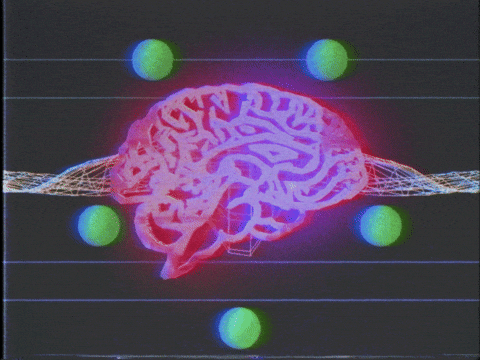Humans > AI
Plus, how chronic pain changes the brain
BRAIN WAVES
Brainstorming: Two heads are better than one, but what about when one of those “heads” is artificial? A new study gave people various creative tasks; for example, looking for other ways to use pants or a fork. The scientists then looked at how people working in pairs generated ideas compared to one person working with a with ChatGPT or Google search tools. They found that the human pairs consistently came up with more original and creative ideas compared to people who worked with AI. What’s more, people were more confident about their ideas when working in pairs. Despite AI's growing capabilities, there seems to be something valuable about human-to-human creativity. As the researchers concluded: “Creativity is a unique human endowment that is not easily replicated by AI.”
The price of pain. Chronic pain doesn't just hurt the body, it can change the way you think. Researchers studied people with chronic inflammatory arthritis and had them play a decision-making game while scanning their brains. They compared them to people without chronic pain playing the same game. In the game, players had to choose between different options that could win or lose them money. The researchers found that people with chronic pain paid much more attention to losing money than winning it. And when they lost money unexpectedly, their brains showed much stronger activity than people without pain. The researchers called it “punishment sensitivity” and concluded that it affects the way people make decisions. Think of it this way: If you touch a hot stove, you probably become extra careful around stoves and other hot things. People with chronic pain seem to be hyper-vigilant of negative outcomes in the same way. Their brains react more strongly to punishments, which might explain why chronic pain can make us avoid seemingly harmless activities or become overly cautious.
What's the meaning of this? What should you do with your life? How can we create a life full of meaning? Listen to learn more.
ON THE HIDDEN BRAIN PODCAST
You 2.0: Change Your Story, Change Your Life: We all tell stories about ourselves, often without realizing we’re doing so. How we frame those stories can profoundly shape our lives. In the kickoff episode to our monthlong series on healing, psychologist Jonathan Adler shares how to tell our stories in ways that enhance our wellbeing.
ON THE MY UNSUNG HERO PODCAST
Eileen Freiberg-Dale’s Story: Eileen Freiberg-Dale was overwhelmed after her husband’s traumatic brain injury. But someone still had to do the leaves. As she raked the yard, crying, she felt a tap on her shoulder.
Don’t forget to send us the story of your unsung hero! Record a voice memo on your phone and email it to myunsunghero@hiddenbrain.org.
HIDDEN BRAIN ON TOUR!
The Hidden Brain tour continues this weekend with a stop in Boston! Join our host Shankar Vedantam as he brings seven key insights from the first decade of Hidden Brain to the stage.
MIND GAMES
Is it correct to say "The yolk of eggs is white" or "The yolk of eggs are white"?
LAST WEEK’S PUZZLE
What building has the most stories?
The answer: The library
A MOMENT OF JOY
Have an idea for Hidden Brain? A story you want to share with us? Send an email to ideas@hiddenbrain.org. Listen to us on Spotify, Apple, Amazon Music or your favorite podcast platform.


